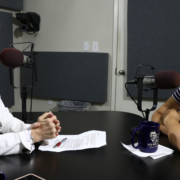NCL: Consumers should be able to access broadcast channels for free via Locast
August 5, 2019
Media contact: National Consumers League – Carol McKay, carolm@nclnet.org, (412) 945-3242 or Taun Sterling, tauns@nclnet.org, (202) 207-2832
Washington, DC—Last week, the four largest broadcast networks—ABC, CBS, Fox, and NBC—filed suit against Locast, a free streaming service operated by the non-profit Sports Fans Coalition NY. The networks’ lawsuit seeks to block Locast’s streaming of local broadcast programming. The suit alleges that Locast violates copyright laws by failing to compensate the networks for their programming.
The following statement is attributable to NCL Vice President of Public Policy, Telecommunications, and Fraud John Breyault:
Consumers can already legally obtain free over-the-air broadcast channels via an antenna on their roofs. We think broadcasters would be better off embracing an innovative technology that allows consumers to more easily access their ad-supported content.
To secure public accessibility of broadcast signals, the Copyright Act expressly permits non-profit organizations to retransmit free over-the-air broadcasts. Locast is operated by the non-profit Sports Fans Coalition NY as a free public service. NCL supports broad consumer choice for access to local broadcast channels.
This year alone, the four largest broadcast networks are expected to generate more than $10 billion in retransmission-consent fees from cable and satellite providers that carry the networks’ programs. These fees are largely passed onto consumers in the form of higher monthly cable and satellite bills. Along with advertising that networks and local television stations sell, retransmission fees support the production of critically important local news content as well as traditional entertainment programming.
NCL and Sports Fans Coalition (SFC) have a history of working together on a range of important consumer issues. In 2014, together we successfully petitioned the Federal Communications Commission to repeal the Sports Blackout Rule. In 2018, we jointly urged the Federal Trade Commission to protect consumers in the live event ticketing marketplace by cracking down on deceptive “white label ticketing websites.” We have also worked with SFC to create a landmark “Sports Bettor’s Bill of Rights” to ensure that consumers are protected as more states move to legalize online sports betting.
###
About the National Consumers League
The National Consumers League, founded in 1899, is America’s pioneer consumer organization. Our mission is to protect and promote social and economic justice for consumers and workers in the United States and abroad. For more information, visit www.nclnet.org.

















